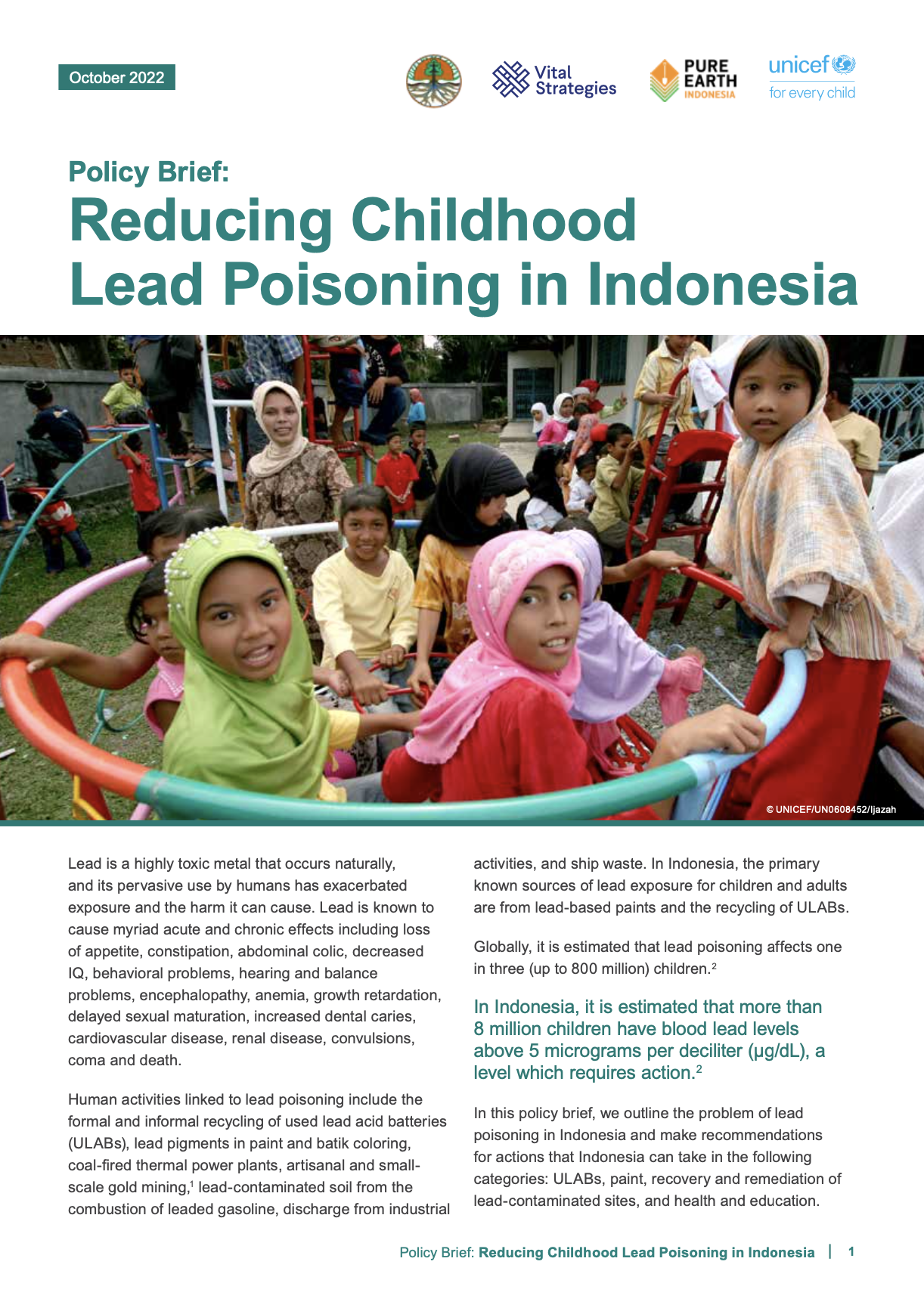Globally, it is estimated that lead poisoning affects one in three (up to 800 million) children. In Indonesia, the primary known sources of lead exposure are from lead-based paints and the recycling of used lead acid batteries (ULABs). There are an estimated 8 million children in Indonesia who are affected by lead poisoning, but given that there has not been a national surveillance program for lead exposure, the true figure could be much higher.
In this policy brief, produced in partnership with the Indonesian Ministry of Environment and Forestry, UNICEF Indonesia and Pure Earth, we outline the problem of lead poisoning in Indonesia and make recommendations for actions that Indonesia can take in the following categories: used lead acid batteries (ULABs), paint, recovery and remediation of lead-contaminated sites, and health and education.
(November 2022)
Recent Abstracts
Impact of Blue Lanes on Road Safety: Crashes, Speed and Motorcyclists’ Perceptions in…
Impacto da Faixa Azul na Segurança Viária: Sinistros, velocidade e percepções de motociclistas…
Culture is Medicine- a Model of Indigenous Harm Reduction in Practice
Trouble Brewing – The Case for Alcohol Policy (Second Edition)
Lessons from Vietnam’s Campaign for a Tax on Sugar-Sweetened Beverages
Principles of Alcohol Taxation
Clean Air in Jakarta: Gaps and Possibilities Toward Low Emission Practices
Public Attitudes Towards Alcohol Policy: South Africa
Quality Assurance and Improvement Framework for Medical Certification of Cause of Death and…
More Data Better Health: Climate and Health in the Legal Amazon
